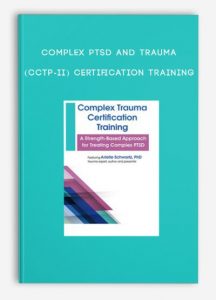
Complex PTSD and Trauma (CCTP-II) Certification Training
Description:
When clients have overt and hidden trauma, knowing what to treat first, when, and how can be overwhelming…
The slightest mistake can derail therapy or profoundly hurt your traumatized clients…
You can’t afford to hesitate or second-guess.
That’s why we’ve developed a framework with a clear path forward for complex PTSD and trauma treatment.
When you register for this integrative complex trauma certification course using EMDR, CPT, CBT, Parts Work, Polyvagal Theory, Neuroscience and MORE…
You will get cutting-edge, evidence-based approaches that do more than just diminish symptoms. You’ll gain a dynamic skill set for unlocking the layers of complex trauma to free your client’s body, mind, and spirit!
Our distinctive interdisciplinary team of renowned experts target every facet of complex PTSD and trauma. You’ll walk away with the confidence to implement:
EMDR techniques to unlock the pain surrounding traumatic memories
Parts Work to quickly identify and accept wounded parts
Principles of CPT to overcome trauma-driven stuck points
Exercises based on Polyvagal Theory to regulate your client’s nervous system, and more!
PLUS, as a bonus, we’ll cover your first year of CCTP-II certification through Evergreen Certifications!
Become a master therapist with the power to treat every layer of C-PTSD and complex trauma.
Part I: Complex-PTSD (C-PTSD) Clinical Treatment
Arielle Schwartz, PhD, CCTP-II
Module 1 | Assessment & Diagnosis
Hallmark must-know symptoms
Diagnostic clarification and differential diagnosis
Key contributing factors of C-PTSD
Module 2 | Neurobiology of C-PTSD
Functional Polyvagal Theory
6 Stages of trauma response
Heart Rate Variability and the Social Nervous System
Utilizing Interpersonal Neurobiology
Psychobiological regulation
Implications of ACES
Neuroplasticity & Trauma
Module 3 | The Damage of C-PTSD
Intrusive symptoms and anxiety
Counter emotional dysregulation
Avoidance symptoms and phobic reactions
Recover clients from dissociation
Dispute cognitive distortions
Link to physical health & somatic problems
Deactivate preverbal and nonverbal memories
Resolve shame-driven pain
Module 4 | Interventions From the Most Effective Approaches
Psychodynamic and Relational Theories
Polyvagal Theory
Cognitive Behavioral Therapy (CBT)
Dialectical Behavior Therapy (DBT)
EMDR
Somatic Psychology
Parts Work
Complementary and Alternative Medicine (CAM)
Module 5 | Best Integrative Interventions
Use a biopsychosocial approach
Recognize attachment injuries
Heal transgenerational trauma
Identify parts, ego states & defenses
Mutual regulation and relational repair
Prepare for trauma processing
Integrate grief work into treatment
Make long-lasting positive change
Module 6 | Best Experiential Interventions
Conscious breathing for self-regulation
Grounding and sensory awareness
Containment: Reclaim choice & control
Build imaginal allies
Cultivate mindfulness, acceptance, and self-compassion
Somatic interventions: Titration, sequencing, and somatic re-patterning
Bilateral stimulation and dual attention
Module 7 | Create Post-Traumatic Growth
The 6 Pillars of Resilience
Resilience as a process and outcome
Move clients from learned helplessness to optimism
Encourage Post-Traumatic Growth
Module 8 | Self-Care for Improved Outcomes
Identify resources that improve your clinical skills
In-session self-care to improve focus
Burnout prevention techniques
Part II: EMDR and Parts Work for Trauma
Arielle Schwartz, PhD, CCTP-II
Module 1 | Neurobiology of PTSD
Nuances of stress, trauma, and complex PTSD
Impact of dissociation
Interpersonal neurobiology, somatic psychology, and social engagement
Polyvagal theory
Skills:
Spacious, Relational Awareness & Co-Regulation
Module 2 | Assessment and Case Conceptualization
Identify chronic, repeated, developmental and sociocultural trauma
Overcoming betrayal trauma
Assess for dissociation (“fragmentation”)
How parts, ego states and defenses create walls to change
Compassionate strategies for “Resistant” clients
Move from shame to empowerment
Skills:
Understand emotional dysregulation as a ‘part,’ connect to the adult self, differentiating from a part
Module 3 | Modified EMDR and Parts Work for Complex PTSD
The 8 phases of EMDR therapy
Neural networks and “encapsulated” ego states
Bilateral stimulation and dual attention in EMDR therapy
Modified EMDR therapy protocols
Preparation for trauma reprocessing
Cultivate mindfulness, acceptance, and self-compassion
Skills:
Choice and containment, build allies for a part of self, facilitate repair scenarios, reprocess a traumatic memory, positive state installation
Cultivate Post-Traumatic Growth and Healing
Trauma recovery and the bell curve
Resilience as a process and an outcome
Move from learned helplessness to learned optimism
Skills:
Create your resilience recipe
Part III: CPT, Pharmacology & Advanced Dissociation Treatment
The Keys Behind How Cognitive Processing Heals PTSD
Kathleen M. Chard, PhD
Apply the


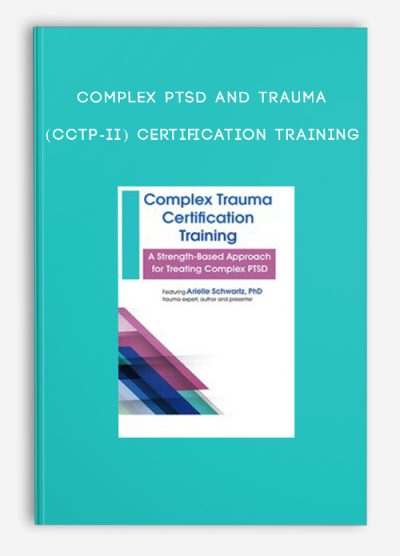
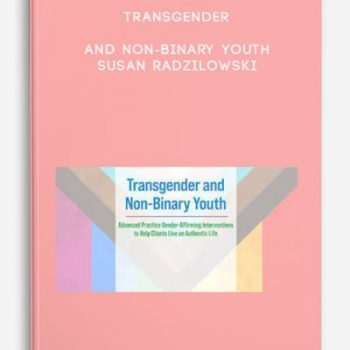
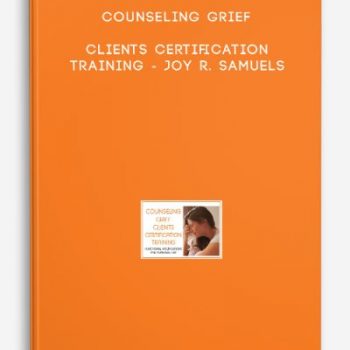
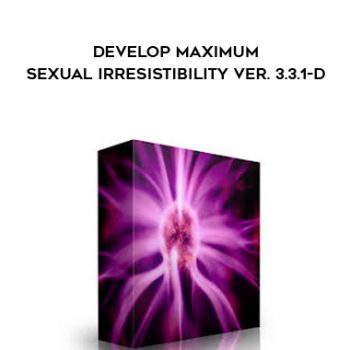



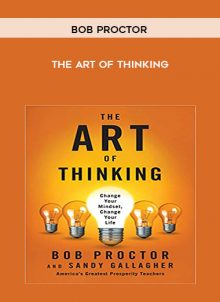


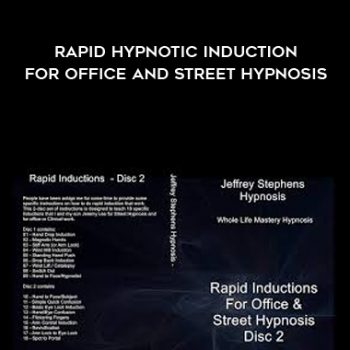
tristian –
This is Digital Download service, the course is available at Vincourse.com and Email download delivery.